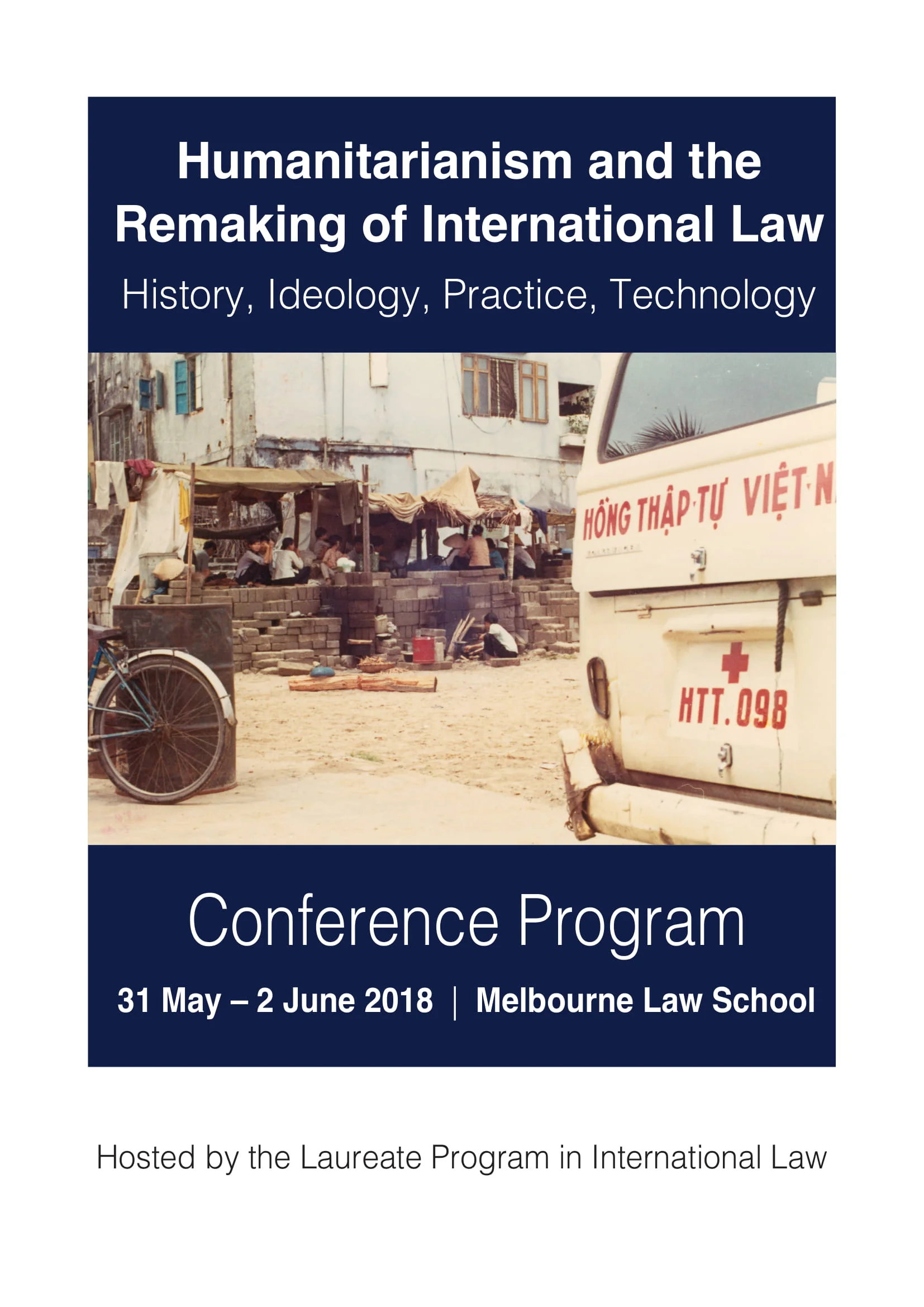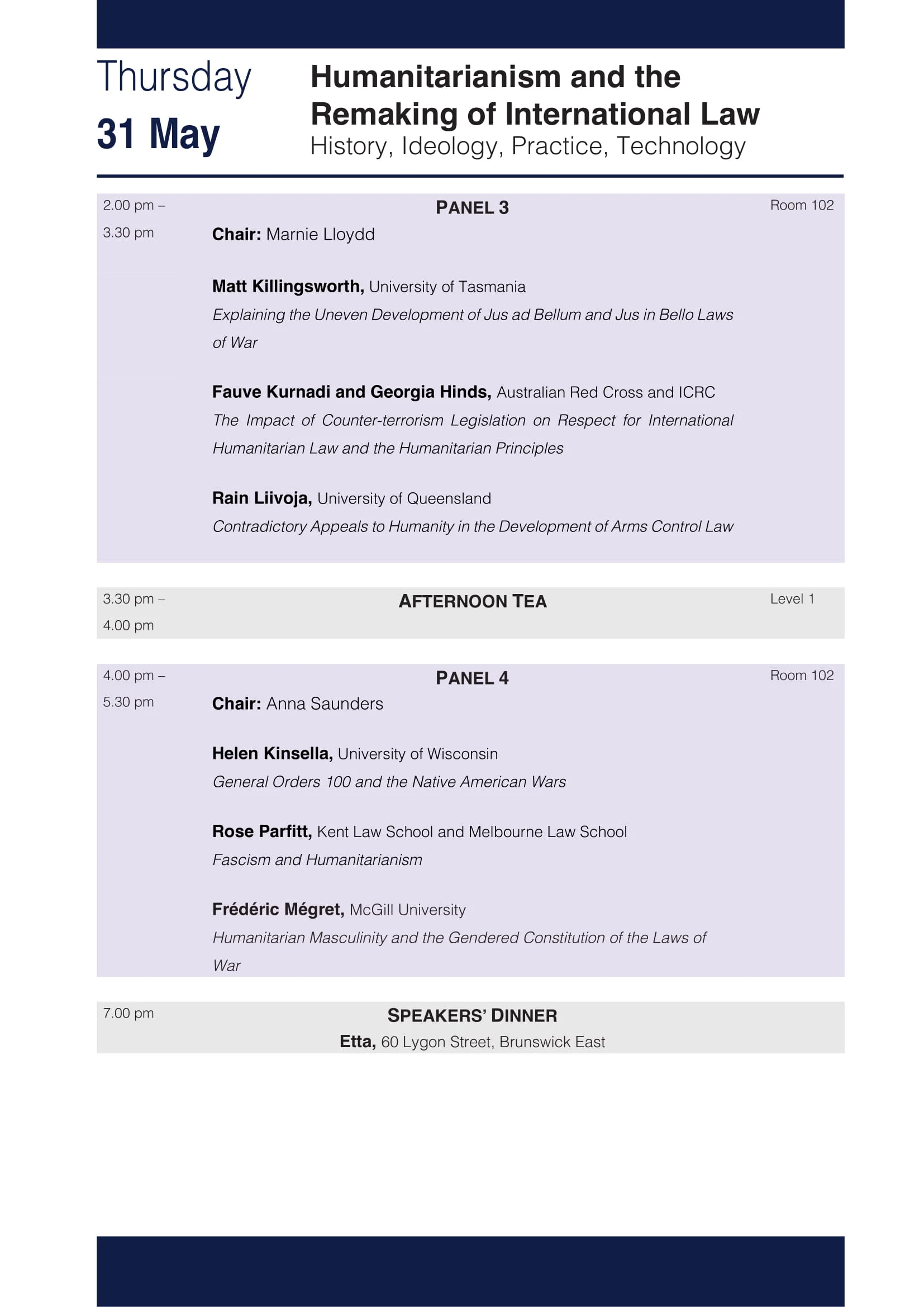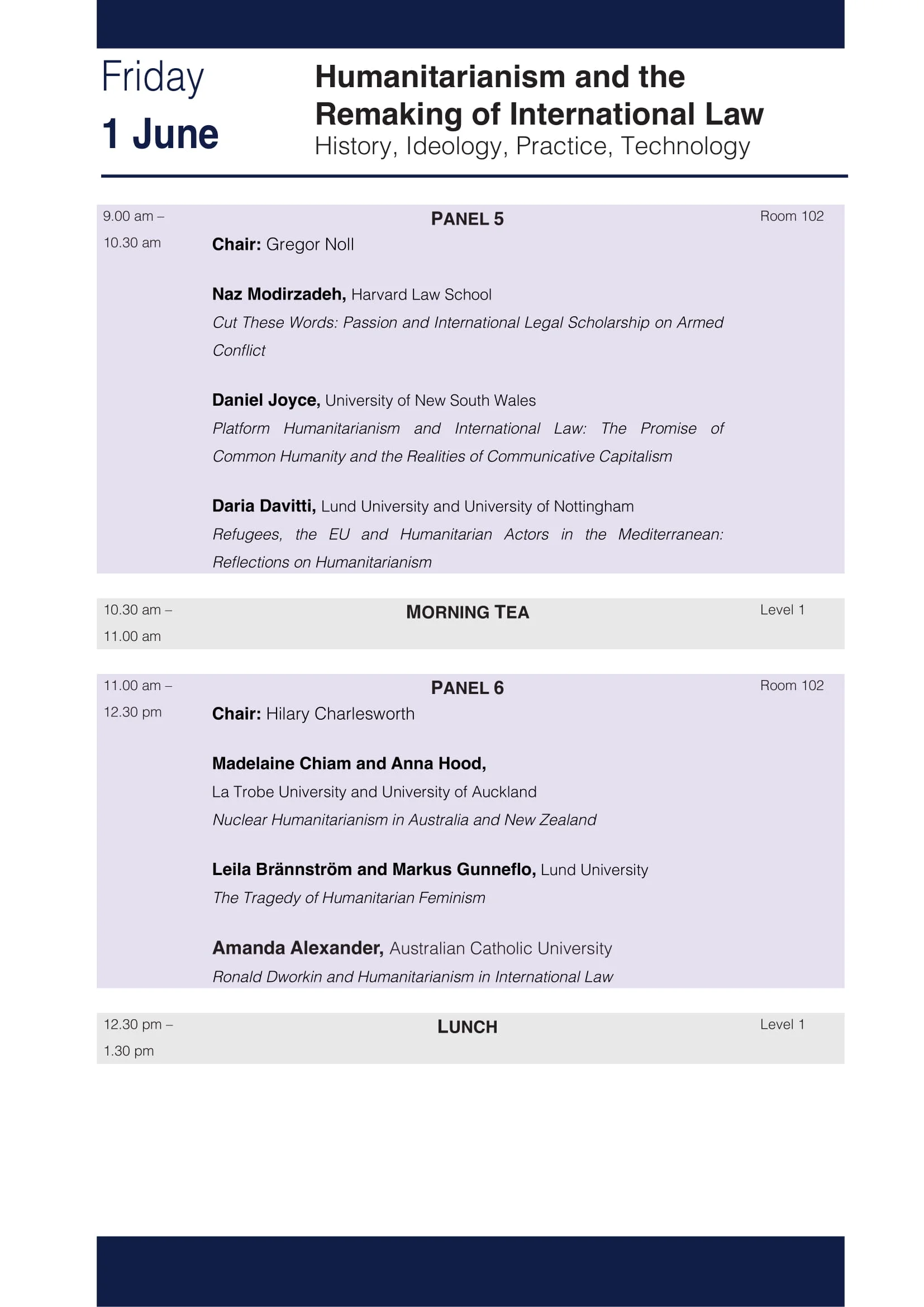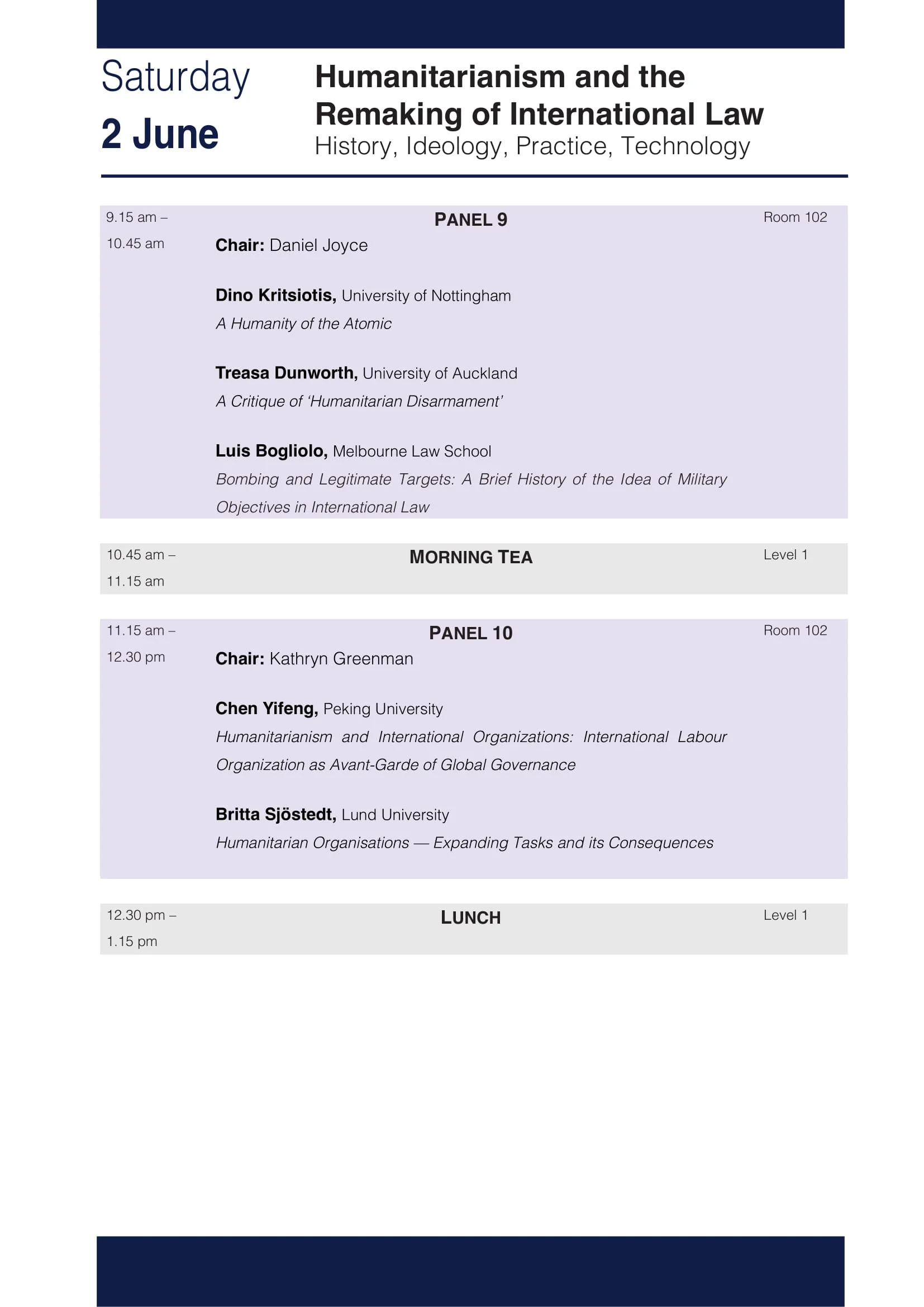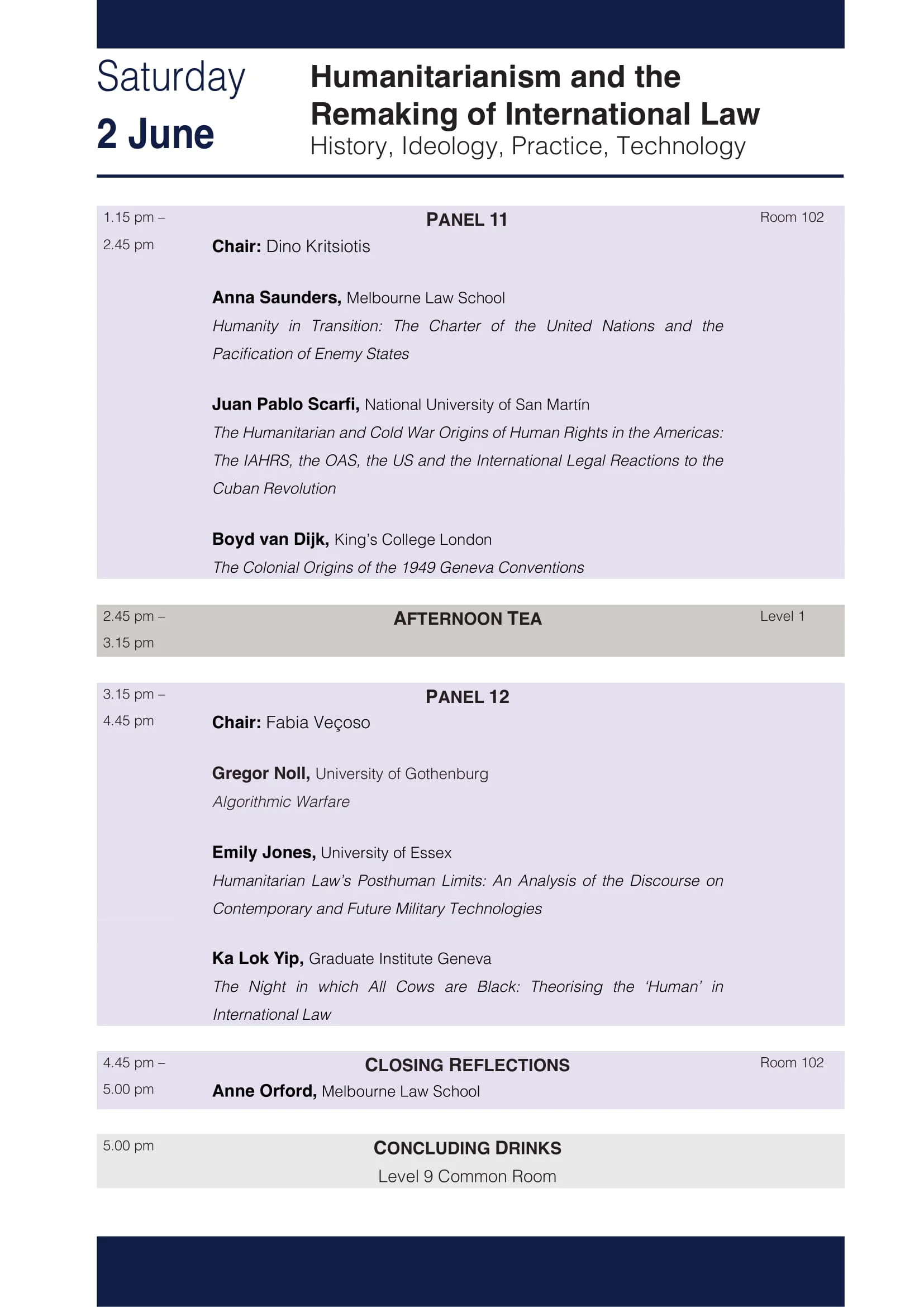Danang. Réfugiés s'étant organisés dans la cour de l'école. Photographer: Michel Schroeder, ICRC Archives
The language and logic of humanitarianism occupy an increasingly central place in international law. Humanitarian reason has shaped the ideology, practice, and technologies of international law over the past century, including through the redescription of the laws of war as international humanitarian law, the framing of mass displacement and armed conflict as ‘humanitarian’ crises, the use of humanitarian justifications for intervention, occupation, and detention, and the representation of international law as an expression of the conscience of humanity.
For some, this trend is clearly positive – international law is reimagined as humanity’s law, humanity as the alpha and omega of international law. Yet critics have pointed to the dark side of these developments and of the humanitarian logic operating within international law, arguing that consolidation of the laws of war has served the interests of powerful groups and states at key moments of potential challenge to existing systems of rule, humanitarianism has been taken up as a language to rationalise the violence of certain forms of occupation, intervention, and warfare, international humanitarian law has displaced other more constraining forms of law as the world becomes imagined as a global battlefield, humanitarian NGOs have served as a fifth column that has enabled particular forms of social transformation and constrained others, and a supposedly impartial humanitarianism has displaced politics.
This conference was convened by Professor Anne Orford, ARC Australian Laureate Fellow and Director of the Laureate Program in International Law, and Ms Anna Saunders, Senior Program Fellow with the Laureate Program in International Law. It brought together scholars working in law, history, international relations, and political theory to think critically about the ideology, institutions, practices, and technologies that condition modern humanitarianism and its relation to international law. Funding for the conference was provided by the Australian Research Council through Professor Orford's Laureate Fellowship Award. A full list of speakers and the program details are available at the conference website.



























